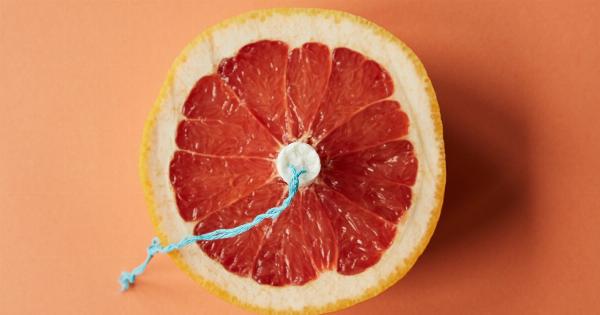Women experience a variety of symptoms and changes during their menstrual cycle every month. These changes can include cramping, mood swings, fatigue, and changes in appetite.
Eating a nutritious and balanced diet during your period can help reduce these symptoms and keep you feeling your best. However, there are some foods you should avoid during this time of the month. In this article, we’ll discuss 8 foods you should skip while on your period.
1. Processed and Fried Foods
Foods that are high in sodium and unhealthy fats can cause bloating, which is a common symptom during your period. Processed and fried foods, such as chips, fast food, and frozen foods, should be avoided.
These foods can cause you to feel even more bloated and uncomfortable. Instead, choose whole foods that are minimally processed and cooked in healthy fats, such as coconut oil or avocado oil.
2. Dairy Products
Dairy products can also contribute to bloating and discomfort during your period. They contain arachidonic acid, which can increase inflammation in the body. Additionally, dairy products can also worsen cramps.
If you experience cramping or bloating during your period, skip the cheese, yogurt, and milk and opt for non-dairy alternatives, such as almond milk or soy milk.
3. Caffeine
Caffeine can cause anxiety and jitteriness, which can worsen mood swings and irritability during your period. Additionally, caffeine can cause dehydration, which can exacerbate symptoms such as headaches and cramps.
If you can’t give up caffeine entirely, limit your intake to one cup of coffee or tea per day, and drink plenty of water to stay hydrated.
4. Alcohol
Alcohol can worsen mood swings and depression during your period. Additionally, alcohol can disrupt your sleep, which can make you feel even more fatigued and irritable.
If you do choose to drink alcohol, do so in moderation and make sure to alternate your alcoholic beverages with water to stay hydrated.
5. Red Meat
Red meat is high in saturated fat, which can increase inflammation in the body. Additionally, red meat can worsen cramps and lead to constipation.
Instead, choose lean protein sources such as chicken, fish, and plant-based protein sources such as lentils, beans, and tofu.
6. Sugar
Sugar can exacerbate mood swings and fatigue during your period. Additionally, sugary foods can cause inflammation in the body and disrupt your blood sugar levels.
Instead, opt for natural sweeteners such as honey or maple syrup, and snack on fruits and vegetables to satisfy your sweet tooth.
7. Soy Products
Many women rely on soy products as an alternative to animal-based protein sources. However, soy products contain phytoestrogens, which can mimic the effects of estrogen in the body.
This can worsen symptoms such as breast tenderness and bloating during your period. If you experience these symptoms, skip the tofu and edamame and opt for other protein sources such as nuts and seeds.
8. High-Fiber Foods
While fiber is important for digestive health, consuming too much fiber during your period can worsen symptoms such as cramping and bloating. High-fiber foods such as whole grains and legumes should be consumed in moderation.
Instead, opt for low-fiber carbohydrates such as white rice and crackers.
Conclusion
While it can be tempting to indulge in your favorite foods during your period, it’s important to avoid foods that can exacerbate symptoms such as bloating, cramping, and mood swings.
By avoiding these 8 foods, you can help reduce these symptoms and keep yourself feeling your best during your menstrual cycle.






























